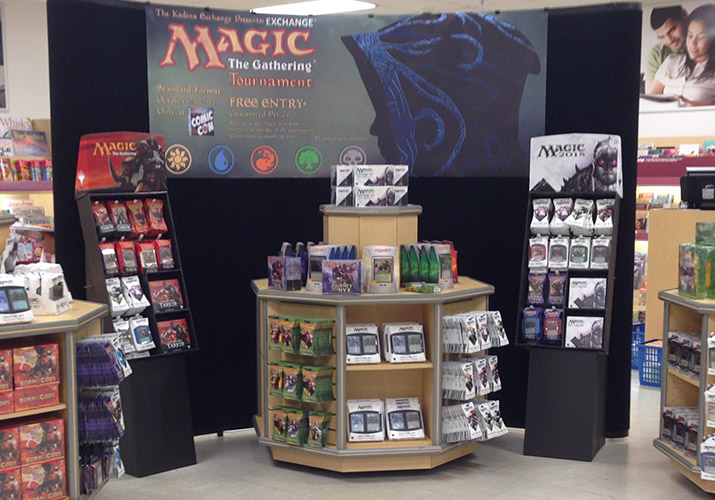Nov 26, 2014
What Makes a Great Display?
8 things you should know about designing product displays
Marketing experts call endcaps and display tables "silent salespeople." Like packaging and signage, they can help make a sale without the aid of staff.
Whether you design your display on an endcap or a free-standing table, keep these easy tips in mind to make sure your "silent salespeople" make a great impression:
1. Create a Theme
A well-curated theme is the difference between a great display and just a pile of stuff. Get ideas from Magic or D&D, seasonal holidays, even internet memes.
2. Put It on Sale
According to the Integer Group, over 90% of shoppers make unplanned purchases, and the primary motivator in the decision to make one is—by far—a sale price.
3. Keep the Signage Clear and Concise
An easily identifiable product (the Holiday Gift Box comes to mind) needs few words, if any, so focus on the promotion.
4. Replenish Often
But not too often. A picked-over display gives an implicit recommendation from previous customers. Showcase sample product at hip-height, with stock product below.
5. Make it Visible from All Angles

Endcaps make up some of the most valuable real estate in your store, but they're rarely approached from head on. Keep that in mind when you're setting them up.
6. Keep Safety First
A great display is an invitation to learn more—not an obstacle to be tripped over. Draw the customer to the endcap by creating an attractive display with attractive signage, not by congesting a thoroughfare.
7. Rotate (At Least) Every Two Months
Change up your displays regularly so customers feel there's always something new to discover.
8. Display Ancillary Products Nearby
What pairs well with the product you're showing off? Keep ancillary items, like deckboxes, dice, playmats, or sleeves, within reach.
A couple of display-ready items are upon us: Magic: The Gathering—Commander (2014 Edition) is available now, and the Holiday Gift Box releases November 14. Try these tips out as soon as they're in stock!

